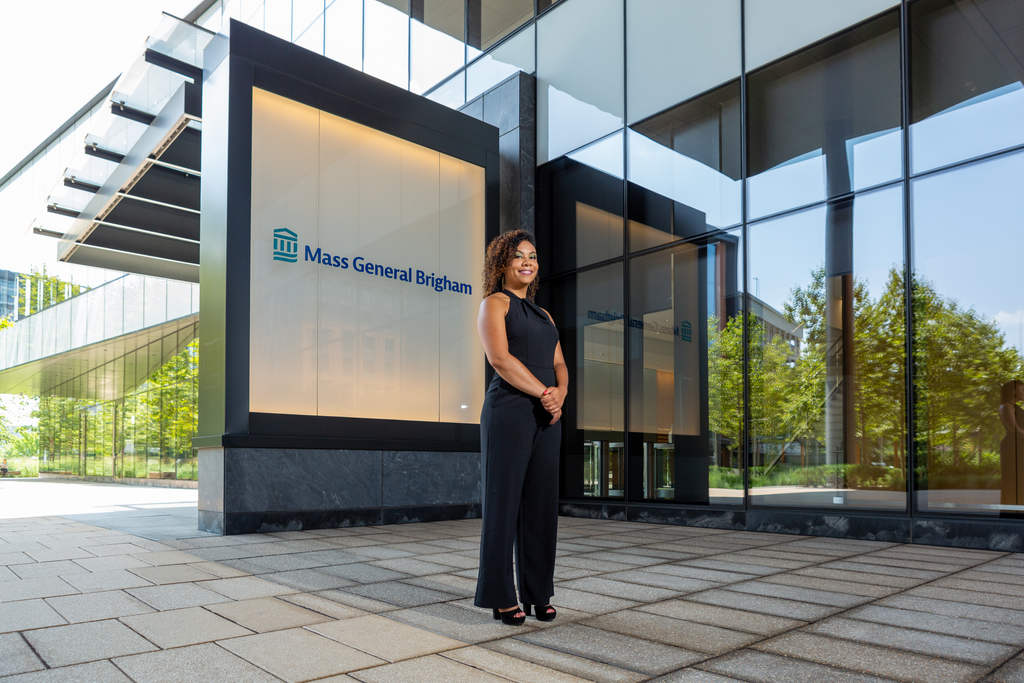Helping Undo Systemic Racism

Photos by Michael D. Spencer
Helping Undo Systemic Racism
Taylor Goyette-Frechette develops racial equity training for employees at Mass General Brigham
During her final year in the Bachelor of Social Work program at the former Wheelock College, Taylor Goyette-Frechette interned at the Southern Jamaica Plain Health Center, where she taught high school students about racial justice. “It was there,” she says, “that I discovered the power of social work and the racial justice movement.”
Today, Goyette-Frechette (’17, SSW’20) is a trainer and project coordinator for Mass General Brigham in Boston, developing and delivering racial equity training for the 80,000 employees of a healthcare system that includes Brigham & Women’s and Mass General, two of the world’s most prestigious teaching hospitals.
Goyette-Frechette’s work is inspired by the African philosophy Ubuntu, which roughly translates to “I am because we are” and emphasizes the power of community and the connectedness of people. She believes that our daily actions and decisions have the power to reinforce or to dismantle the culture of racism.

For those who want to help undo systemic racism, Goyette-Frechette offers these suggestions:
Start with yourself. A racist system hurts everyone, and it’s important to recognize how structural racism makes you feel and how it negatively affects your life. “Don’t only do this work on behalf of other people,” says Goyette-Frechette. “Do this work on behalf of yourself, your communities, and your children. We all have something to gain when we work to create a world centered on liberation.”
Talk about it. If you don’t know how to start a conversation about racism, begin by expressing your personal feelings. “Instead of trying to come up with the right words and the right language, lead with how you feel.”
Address the inequities around you. Look at your workplace, your neighborhood, and other spaces where you have power to make change. Challenge the policies and practices—written or unwritten—that result in injustice and inequity there
Find your people. “This is hard work, and you can’t do it alone,” says Goyette-Frechette, so look for others to join you on the journey.
Keep your eye on the destination. “We’re so focused on getting away from racism that we forget to think about what we want to move toward. What does that new world look like? A space without racism should feel liberating, and liberation feels good. Focus on creating a world that feels good. Let’s all get free.”